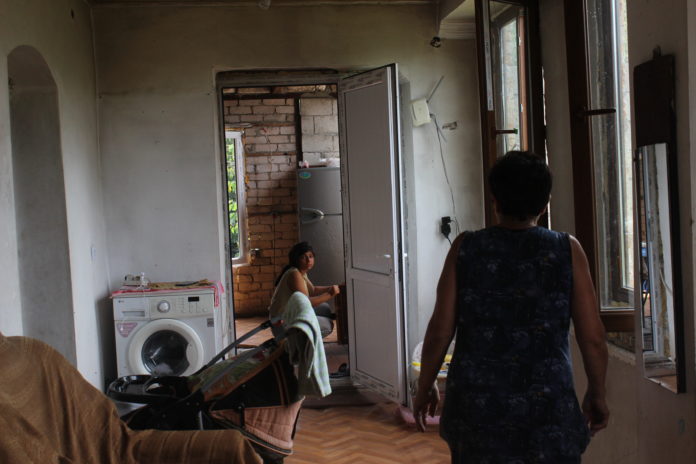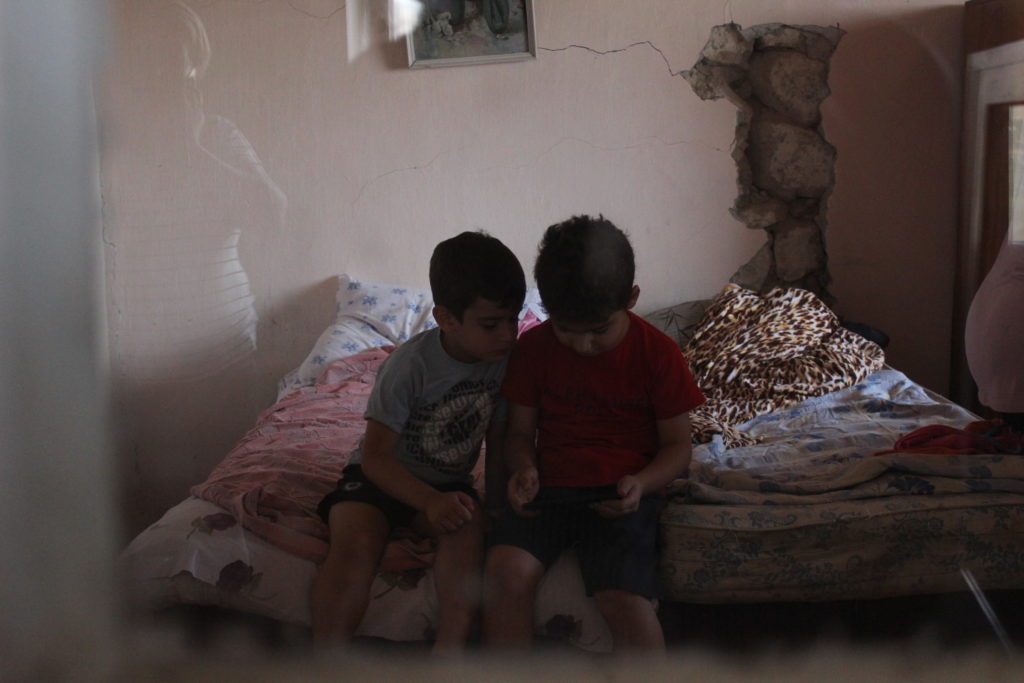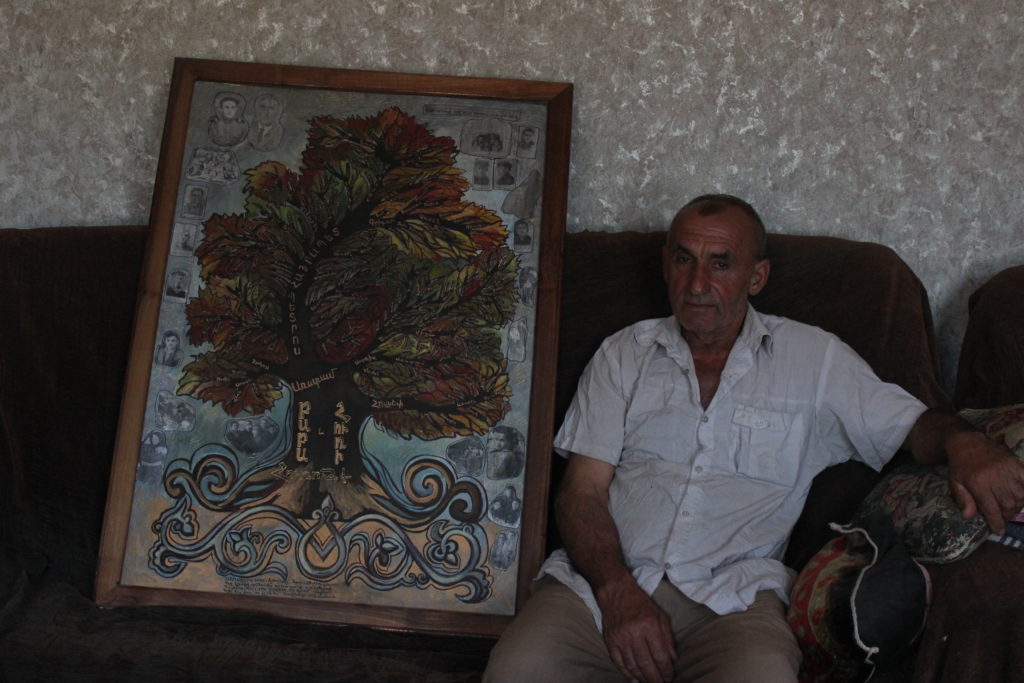SHOSH, Artsakh Republic — This is Shosh, a village in Nagorno Karabakh (Artsakh) that today lies along with the new borderline between Armenians and Azerbaijanis. From their balconies, the locals have a clear view to observe the movements of the enemy. It´s a stark reminder of what they lost in a war that started exactly one year ago.
On September 27, 2020, Baku launched a major offensive against the Nagorno-Karabakh Republic, resuming the unresolved territorial issue of the former Soviet Union. A ceasefire between the sides was signed on November 10, with the intervention of Russia.
The population of Shosh was 621 prior to the war. The village municipality asserts that today there are only 480 people living in the village, 37 of them being displaced people from occupied regions in Artsakh. Shosh was heavily shelled during the first Karabakh war (1991-1994), and also during the last one. Andreas Margaryan, a 64-year-old white-haired man, was the head of the village during Soviet times and now engages in agriculture and beekeeping. He rebuilt his 150-year-old stone house twice and assures he will do it again since he owes it to his offspring.
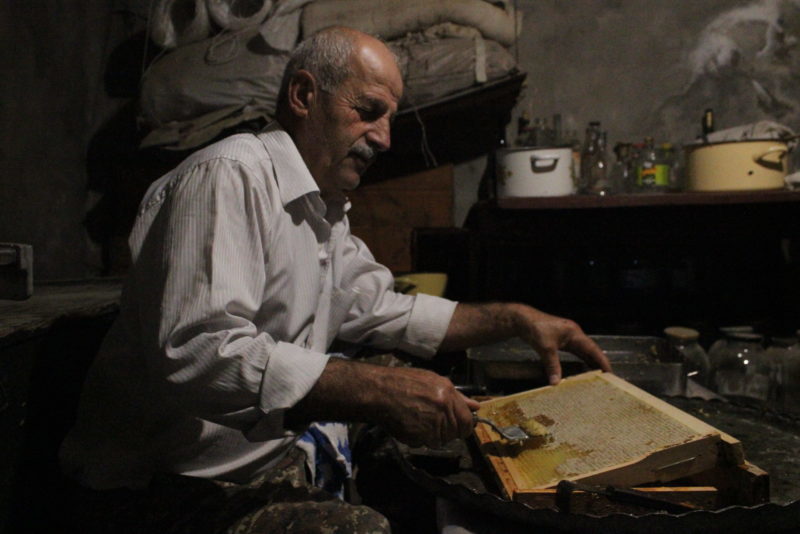
Margaryan and his two sons are engaged in beekeeping. They either sell the honey or keep it for their families. There is a separate room in the Margaryans’ house with the necessary machines and tools for making honey.
“Everyone has a duty to fulfill in the village. If you do not have anything to do, then you do not belong to this community,” repeats Andreas. He still contributes to the prosperity of Shosh and puts his best foot forward as long as he lives within the walls of his ancestral house.
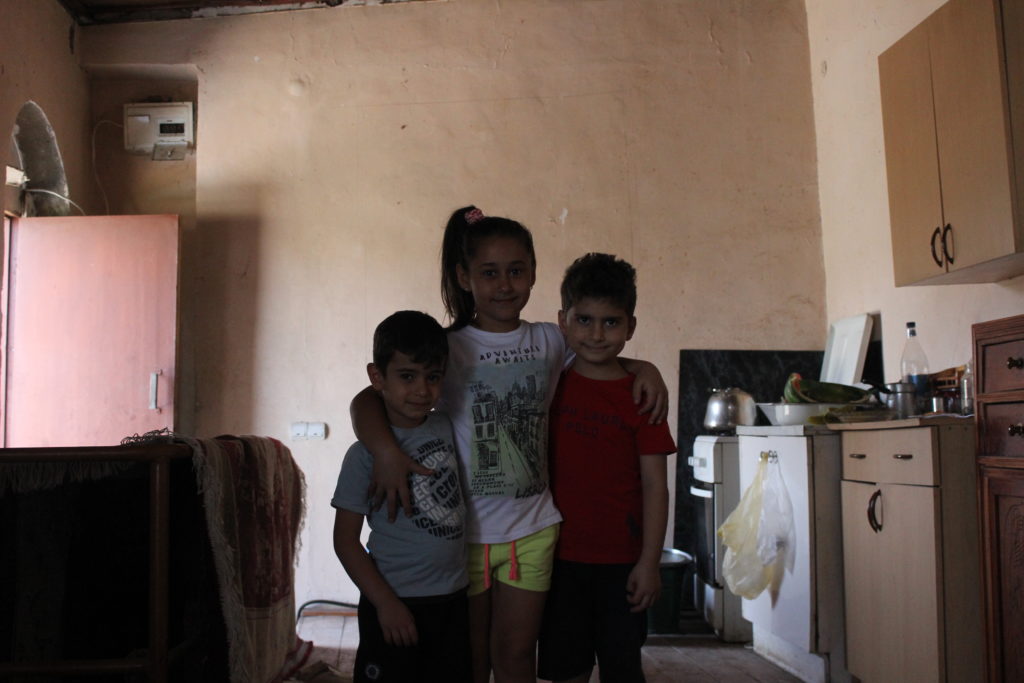
Margaryan has three children and five grandchildren. He is willing to reconstruct his house for the kids to grow up in good conditions. The roof was damaged due to shellings and will soon be restored.
Children in Shosh already acknowledge the danger they are living through and do not dodge their duty. Last year, the morning of September 27 was not a horror movie for Artyom, but rather something new and unwonted: he heard shootings and saw the smoke of burning military equipment. Artyom is 10 years old but imagines himself as a soldier from bygone times, and on that awful September 27, he didn’t take fright. Instead, he took shelter only after bringing back their cows from a neighboring village that was in the same danger.
Suren Babayan’s roots in the village dates to mid-19th century. He has lived his six decades with a dedication to Shosh, went through two wars, and witnessed a lot, from amity with the Azerbaijanis to expecting the next bomb to target his house. He lost pasturelands and animals, friends and relatives, but his hope hasn’t utterly expired since the villagers are still adjacent to their lands. The village has started to revive after being heavily shelled in the recent war: the damages are gradually eliminated due to state support and people have returned to their homes and the normal rhythm of life. However, Suren assures, the destiny of this tiny corner is hidden in the haze.



